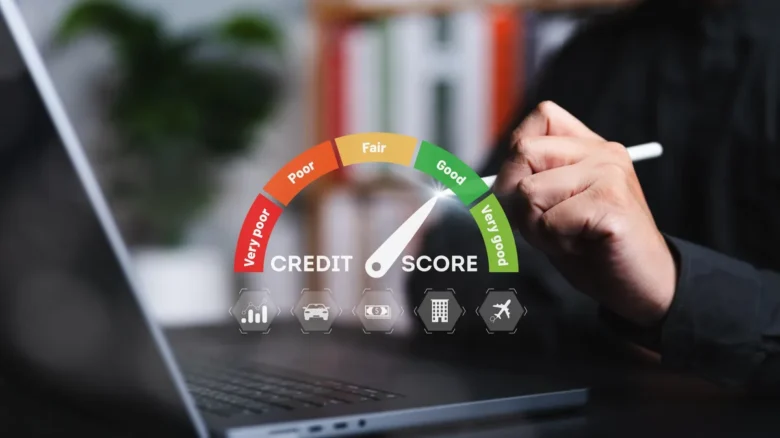Your credit score is crucial to your financial well-being. It can affect your chances of getting a loan, credit card, mortgage, or even a job or lease. A favorable credit score demonstrates financial responsibility and can help you get better loan rates and terms. Building and maintaining a good credit score takes time and effort, but it’s achievable if you develop good habits and maintain discipline. This includes making smart financial decisions, being prepared, and understanding how credit scores work.
Always Pay Your Bills on Time
Paying your bills on time is one of the best ways to improve your credit score. Your payment history is a crucial part of your credit score. Lenders can trust you if you consistently pay your bills on time or before the due date. This rule applies to credit cards, loans, utilities, and other debts. Even one missed payment can significantly lower your credit score. Set reminders or automate bill payments to ensure you never miss a payment. A favorable payment history builds trust with lenders and increases your chances of receiving a loan in the future.
Keep your Credit Utilization Ratio Low
Your credit utilization ratio refers to your current available credit limit. Keeping your credit utilization ratio low is crucial for improving your credit score. You should aim to keep it below 30% of your total available credit limit. Even if you pay your bills on time, having too much money in your accounts can give the impression that you’re living beyond your means or are in serious financial trouble. You can improve your credit profile by paying down debt and avoiding maxing out your credit cards. A low credit utilization ratio indicates that you’re using your credit wisely, which benefits your credit score.
Avoid Unnecessary Inquiries
When you apply for a new loan, lenders conduct inquiries, which can lower your credit score in the short term. A few inquiries don’t have a significant impact, but applying for a large number of credit accounts in a short period of time can be a warning sign. Lenders may perceive you as desperate for credit, which can reduce the likelihood of approving your application. If you want to improve your credit score, be careful when applying for new credit. Only apply for credit when you need it, and spread your applications out to prevent a drop in your credit score.
Keep Old Accounts Open to Build your Credit History
The length of your credit history influences your credit score. This includes the age of your oldest and newest accounts, as well as the average age of all your accounts. Keeping old credit accounts, especially those with a good payment history, can improve your credit score by expanding them. If you no longer use a credit card, it’s best to keep it unless the annual fee is high. Lenders can learn more about your credit habits by looking at accounts you’ve had open for a long time. The longer you manage your finances responsibly, the higher your credit score will be.
Check your Credit Report for Errors
You may not even realize that errors in your credit history negatively impact your credit score. If there are inaccuracies in your information, such as multiple accounts, fraudulent activity, or incomplete payments, your credit score can drop. Therefore, check your credit report regularly. You can request a free annual report from each of the three major credit bureaus (Equifax, Experian, and TransUnion). You can identify and dispute errors in your report before they cause long-term damage. By keeping your report up-to-date, you ensure that your credit score truly reflects how you manage your finances.
Use Multiple Forms of Credit Responsibly
Borrower scoring models favor borrowers who can manage multiple borrowing options responsibly. You need installment loans (such as car loans or student loans) and revolving credit (such as credit cards). You don’t need to open additional accounts to improve your credit score, but if you already have multiple forms of credit, managing them properly can help. Lenders consider having multiple credit accounts a sign of financial maturity and experience. The key is to manage each account well, pay it on time, keep your balance low, and avoid overspending.
Conclusion
You don’t need complicated plans or quick fixes to improve your credit score. You just need to make smart, long-term financial decisions. You can steadily improve your credit score by paying bills on time, keeping your credit utilization low, avoiding unnecessary credit applications, and keeping your credit record accurate and diverse. Every right action you take will strengthen your financial situation. A high credit score can help you get lower interest rates, obtain loans, and find other ways to earn money. With patience and consistent effort, anyone can take control of their credit and work toward a better financial future.
FAQs
1. How long does it take to improve your credit score?
The time it takes to improve your credit score depends on your credit history, but many people see changes within a few months if they consistently do the right things. Significant changes can take six months to a year, or even longer.
2. Is closing old credit cards harmful?
Closing old accounts shortens your credit history and increases your credit utilization, which can negatively impact your credit score. If your fees on old cards aren’t too high, you may choose to keep them.
3. How many credit limits should I use?
Try to keep your credit limit utilization below 30%. The lower the better, as that demonstrates excellent credit management.
4. Does checking my credit score affect my credit ?
No, checking my credit report or credit score is a soft check, meaning it doesn’t change my credit score.
5. How often should I check my credit report?
You should check your credit report with each bureau at least once a year. More frequent checks can help you detect errors or identity theft more quickly.




